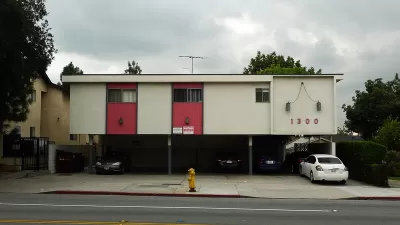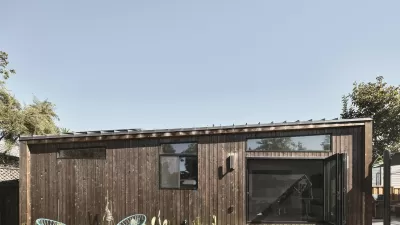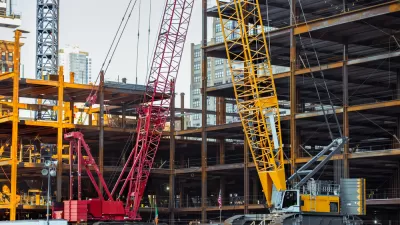The legal, and social, challenges to building more second units in Los Angeles.
The Washington Post’s Wonkblog revisits the conflict in Los Angeles around second units, or granny flats, since a 2016 lawsuit forced the city to stop issuing permits for them.
The suit itself is naturally limited to legal arguments, explored in the article. But even the land-use lawyer behind the complaint admits his opposition is also socially motivated, hinging on a desire to maintain a particular aesthetic and class sensibility in single-family neighborhoods.
Secondary units don’t just alter the scenery or erode privacy. Build enough, and a neighborhood may not truly remain single-family anymore, with all its associations of middle-class stability and nuclear families.
Advocates for second units also sometimes adopt, rather than challenge, these terms; a state senator trying to overrule local restrictions like Los Angeles’s told the Post:
"There is a mind-set in suburbia that … it’s going to be those people — which is ridiculous, because the cost of housing in California is so high that it’s really us. It’s teachers and the people that work on my staff."
While solving L.A.'s legal problems may not be easy, there is a path forward. Public resistance may be more difficult to erode. The city is launching a pilot program to showcase less "menacing" second units, Badger reports—but "a community lender is underwriting their construction loan, because traditional banks won’t finance such properties."
FULL STORY: The next big fight over housing could happen, literally, in your back yard

Planetizen Federal Action Tracker
A weekly monitor of how Trump’s orders and actions are impacting planners and planning in America.

San Francisco's School District Spent $105M To Build Affordable Housing for Teachers — And That's Just the Beginning
SFUSD joins a growing list of school districts using their land holdings to address housing affordability challenges faced by their own employees.

The Tiny, Adorable $7,000 Car Turning Japan Onto EVs
The single seat Mibot charges from a regular plug as quickly as an iPad, and is about half the price of an average EV.

Seattle's Plan for Adopting Driverless Cars
Equity, safety, accessibility and affordability are front of mind as the city prepares for robotaxis and other autonomous vehicles.

As Trump Phases Out FEMA, Is It Time to Flee the Floodplains?
With less federal funding available for disaster relief efforts, the need to relocate at-risk communities is more urgent than ever.

With Protected Lanes, 460% More People Commute by Bike
For those needing more ammo, more data proving what we already knew is here.
Urban Design for Planners 1: Software Tools
This six-course series explores essential urban design concepts using open source software and equips planners with the tools they need to participate fully in the urban design process.
Planning for Universal Design
Learn the tools for implementing Universal Design in planning regulations.
Smith Gee Studio
City of Charlotte
City of Camden Redevelopment Agency
City of Astoria
Transportation Research & Education Center (TREC) at Portland State University
US High Speed Rail Association
City of Camden Redevelopment Agency
Municipality of Princeton (NJ)





























